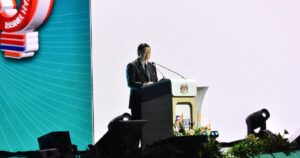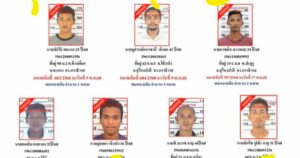KUALA LUMPUR: The agreement on reciprocal trade (ART) with the United States on digital trade and technology does not limit Malaysia’s taxing powers.
Investment, Trade and Industry Ministry, in a frequently asked questions document on the agreement, explained that Article 3.1 of the ART does not require Malaysia to abolish or exempt digital taxes.
“Article 3.1 touches on digital services tax (DST) and states that Malaysia shall not impose DST or similar taxes that discriminate against US companies in law or in fact.
“Malaysia does not agree to abolish the DST. Article 3.1 does not require Malaysia to abolish or exempt digital taxes. It only ensures that any taxation is implemented fairly and without discrimination against US companies.”
The ministry added that Malaysia retains full authority to impose digital taxes.
The Service Tax on Digital Services (SToDS) applies to all foreign companies, including US firms, that meet the criteria, consistent with international rules and the World Trade Organisation practices, it said.
SToDS also operates alongside the Sales and Service Tax for domestic digital services.
“This means that Malaysia’s right to legislate, collect, and enforce taxes remains fully preserved.
“In short, the agreement does not limit Malaysia’s taxing powers, it mainly seeks to ensure transparency in its implementation,” it added.
Meanwhile, the ministry said Malaysia has the authority to get access to information or technology from companies that operate in the country.
On Article 3.4, the ministry said US companies are not required to surrender their IP to operate here.
“However, Malaysia retains the authority to obtain access to information or technology when necessary for law enforcement, national security, financial audits, or official investigations, subject to strict legal procedures.
“If companies wish to share technology voluntarily, this may be done through valid commercial agreements. This approach encourages structured technology transfer based on consent and mutual benefit,” it said.
“Article 3.4 protects companies from being forced to disclose technology, source code, or trade secrets as a condition of operating in Malaysia.”
On questions about the percentage of local TV content, the ministry said there is no regulation mandating 80 per cent local content for all new stations.
“In fact, foreign content is already permitted during prime time in line with the Communications and Multimedia Act 1998. Content oversight remains under the jurisdiction of the Malaysian Government,” it said.
This was in response to claims that Malaysia is required to abolish the broadcasting licence condition that mandates 80 per cent local content as part of the ART.
© New Straits Times Press (M) Bhd






